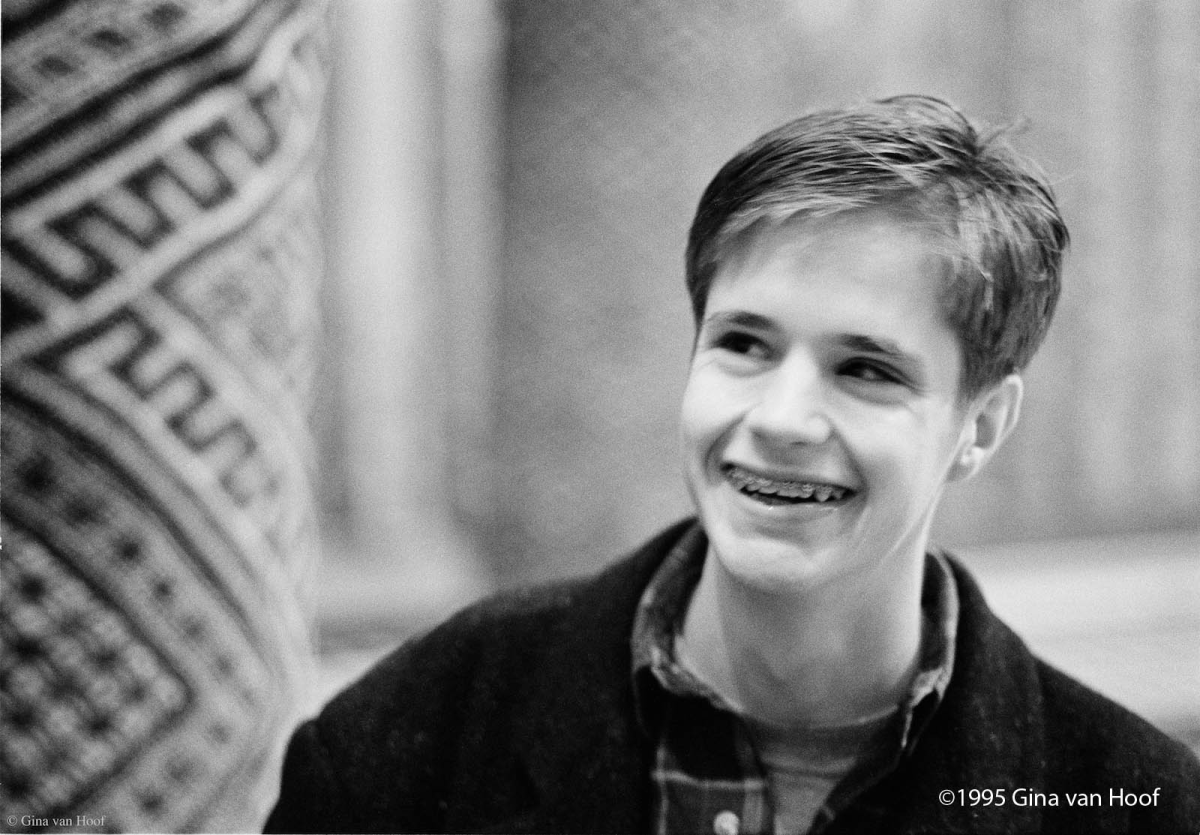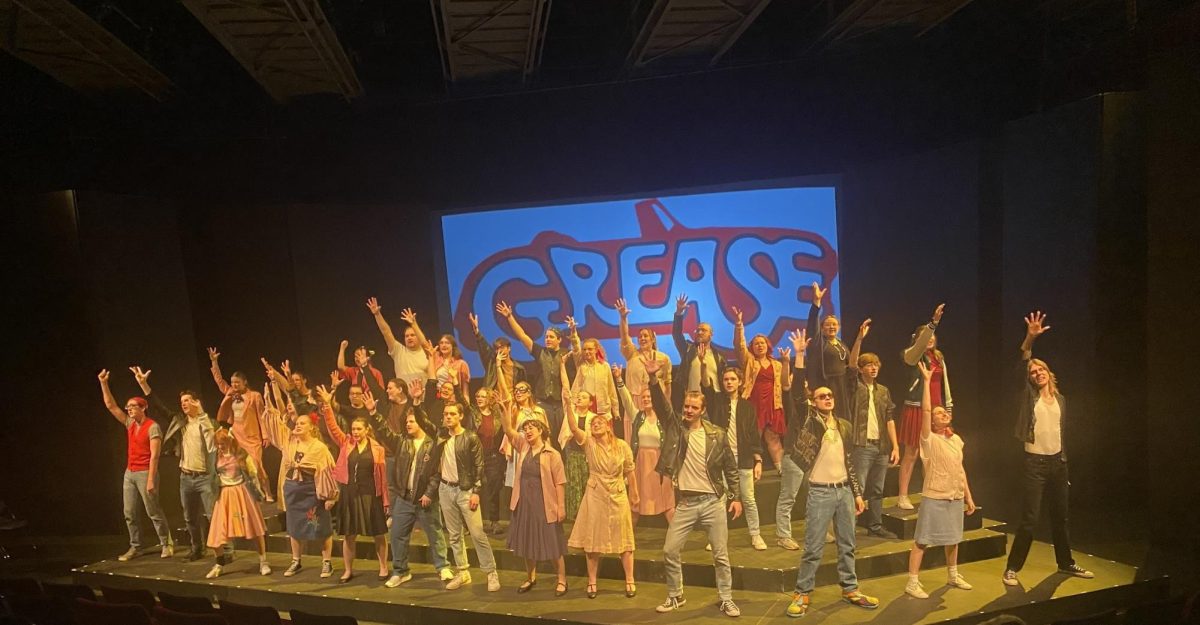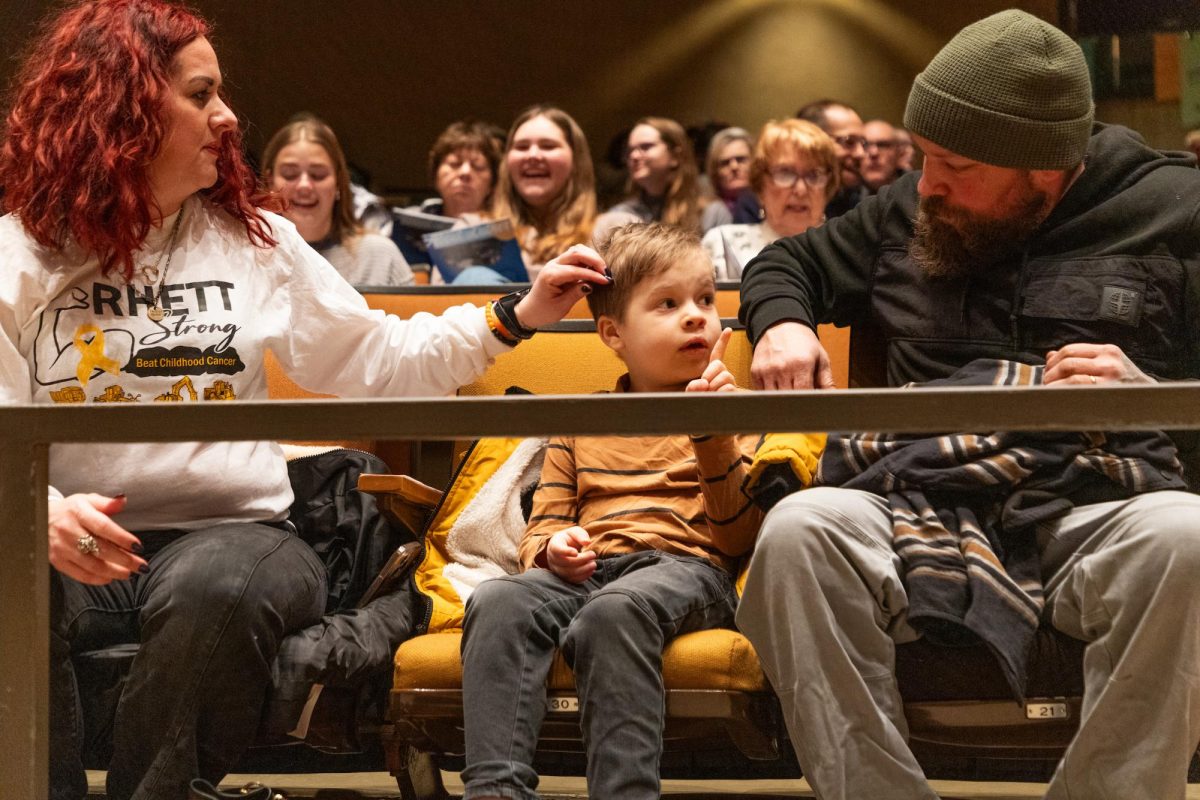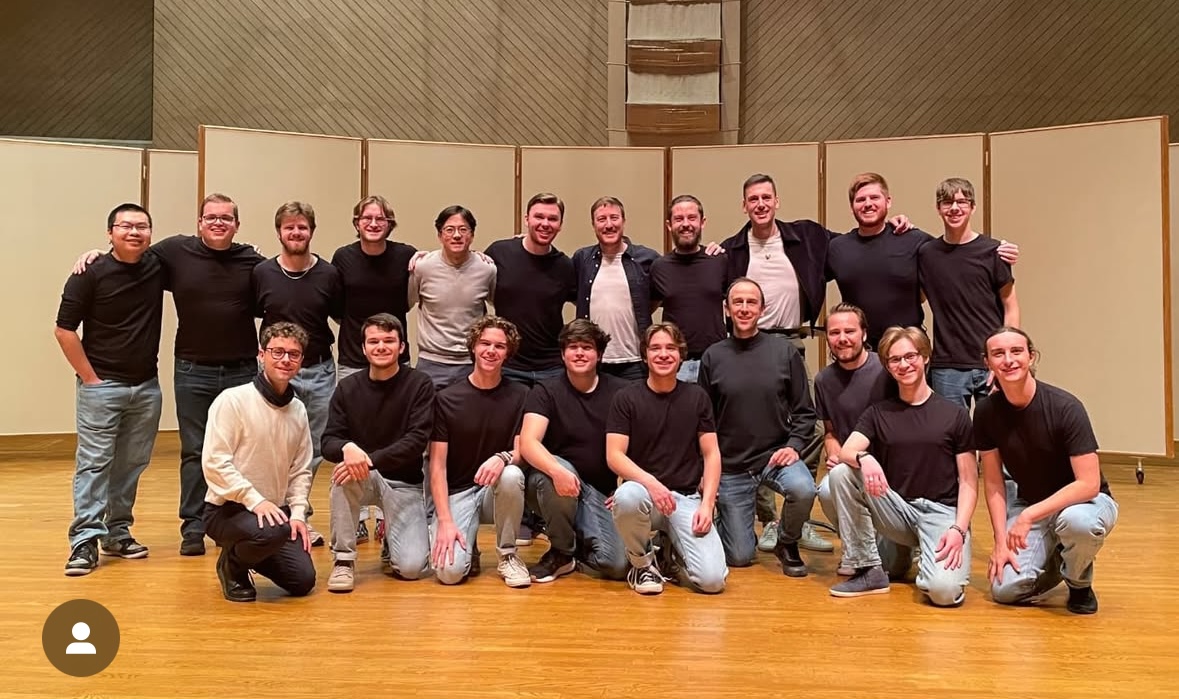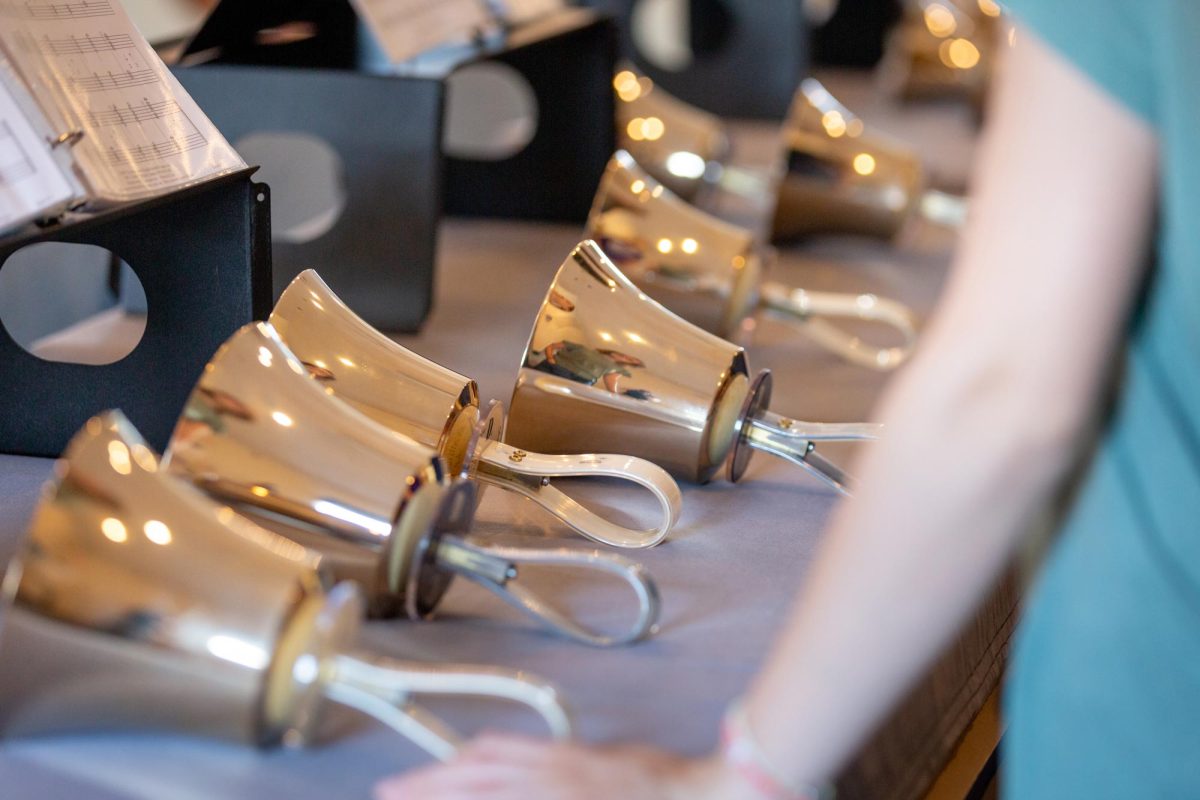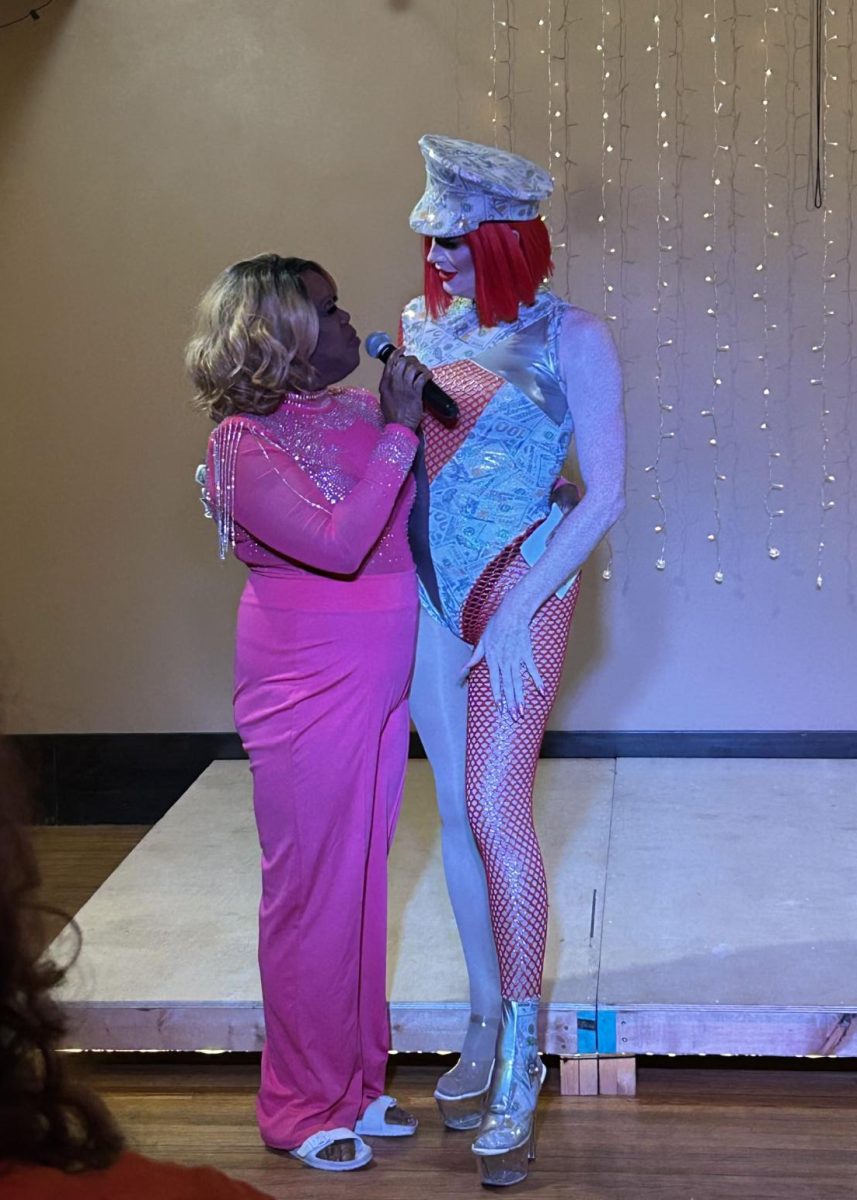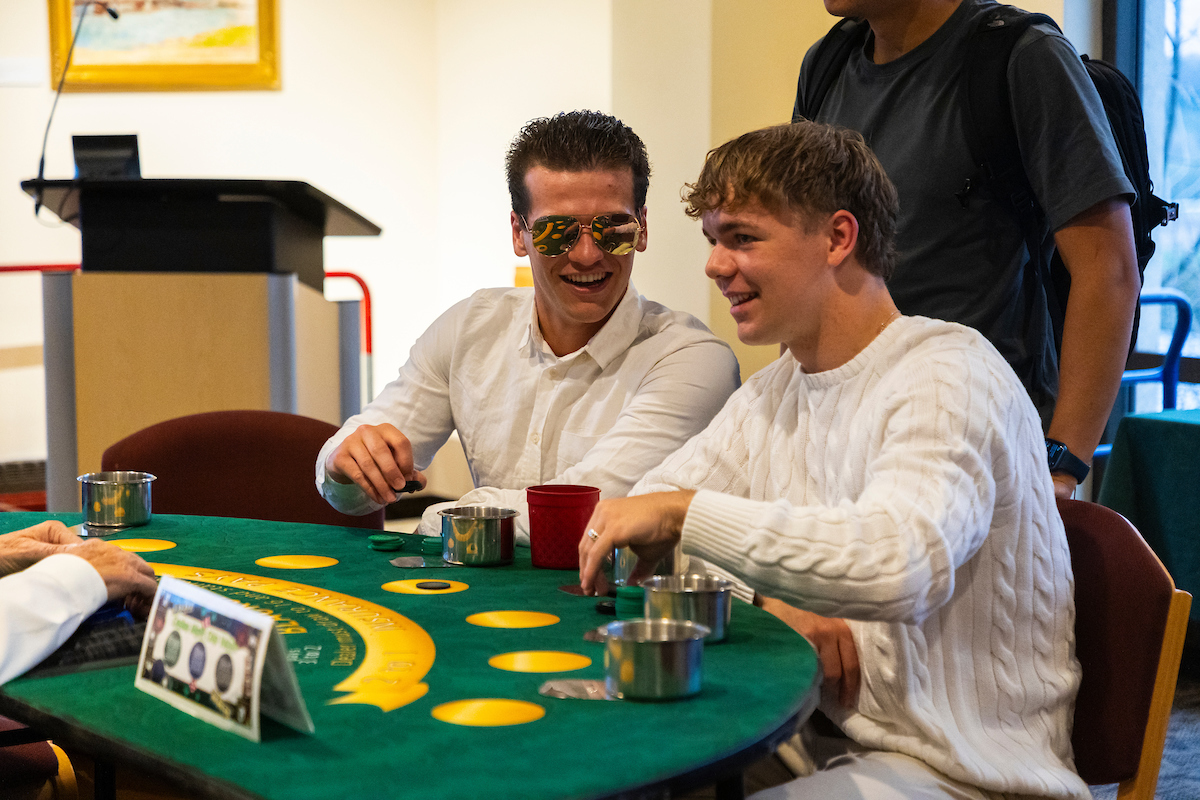In October 1998, Matthew Shepard, a gay student at the University of Wyoming, was kidnapped, beaten, tied to a split rail fence in a field, and left to die as the stars watched over him. As the world watched rural Wyoming, he died five days later.
On April 5, every seat of the Noble Recital Hall was filled with audience members excited to hear Nordic Choir’s spring oratorio performance, “Considering Matthew Shepard.” Two sold out performances gave the audience a glimpse into many facets of Shepard’s story, telling it from the perspective of the fence, protesters, the stars in the sky above and the doe that watched over Matthew’s dying body.
Craig Hella Johnson, a well known choral composer, created a three-part oratorio to commemorate the 25th anniversary of the murder, setting texts by Hildegard of Bingen, Lesléa Newman, Michael Dennis Brown, and Rumi. “Considering Matthew Shepard” also includes passages from Shepard’s diary, interviews and writings from his parents, Judy and Dennis Shepard, and newspaper reports, as well as additional text written by Johnson and Browne.
The production initially situated the audience within the beauty of Wyoming, introduced Matthew as an ordinary boy, and ended the first section by asking the audience to be “open to hear this story about a boy, an ordinary boy” who never expected his life to become such a poignant and resonant story.
Interspersed narrations told the story of the murder, the aftermath and the trial from many perspectives. As Nordic Choir rehearsed this piece, they all had a hand in the way that this story was communicated to the audience, choosing to sing parts of the work from the aisles and incorporate projections of Nordic Choir members. Choir member Tyler Belanger (‘25) felt this artistic choice helped the performance to resonate more with the audience.
“In performances, it’s easy to look at performances and view them solely through the lens of these are performers performing a piece,” Belanger said. “But [projecting videos of the choir during the performance] was a way to further the connection between [the Choir] and the audience. [Nordic Choir Director Andrew Last (‘97)] really emphasized that point when we were staging it: we were going out into the audience to connect with them, so they were not just sitting there watching us perform. We were going out so we could be there, and experience it with them.”
The audience was surrounded by both the story and the choir, as images of Matthew Shepard, rural Wyoming, the fence, and the starry sky appeared on the wall. Audience members were particularly moved by the inclusion of projections of the tenors and basses from the choir, as they sang, “we are all sons of fathers and mothers / sometimes no home for us here on the earth / no place to lay our heads […] if you could know for one moment / how it is to live in our bodies within the world.” Throughout, people were visibly weeping, hands to mouth, or blinking away tears. Nordic Choir member Abby Weidt (‘25) also pointed out the effort to maximize the audience’s experience.
“It was a whole choir effort to be able to produce the show that we wanted to convey to our community, whether that be through the pictures up on the slides, or how we were dressed, or the different emotions we conveyed,” Weidt said.
These artistic choices were particularly meaningful to Siri Hokanson (‘26), who attended one of the performances. Hokanson thought that the photos and videos of Nordic Choir singers resonated with her the most.
“When watching a performance like this, it can feel better to disconnect what happened from real life and think that something like this could never happen to someone you know, but this performance refused to let you do this,” Hokanson said. “Seeing your friends’ faces in connection with this devastating story makes you feel even more deeply about Matthew because you can emotionally recognize the grief and devastation Matthew’s friends and family felt.”
This is a potentially controversial work to perform, as anti-LGBTQIA+ bills sweep both the nation and Iowa, and recent anti-LGBTQIA+ vandalism was found in Decorah. Yet, to the choir, queer visibility is as important as ever, especially in these times. Weidt explained that the choir talked at length about the message of this work in today’s world.
“We found it important to tell the story even though not everyone else agrees with it,” Weidt said. “It was probably the most musically fulfilling thing I have done. I feel privileged to have been able to do this, and to have a community that supports it, whether that be at the college level, or in the choir, or my friends around me. It’s easy to be in the Luther bubble, but it’s important that you reach people who might not feel the same as you. And I think the most powerful way to do that is through music.”
“Considering Matthew Shepard” ends by asking the audience how to begin again, how to find joy in the face of fear, reminding us that it takes all of us to figure out where to begin, and how to move through times of hardship and heartbreak. Though the story is tragic, the resounding message of the piece was one of hope and togetherness. Julia Weiner (‘25), a member of Nordic Choir, commented on the hope she felt after finishing the performances.
“I think I worried, leading up to the performances, about the emotional weight of the piece and that it may be draining to give so much to the music, audience, and story,” Weiner said. “Yet, I found that after the performances, I felt somewhat renewed and lighter. The message of hope that concludes the work is what has stuck with me most, I think. I’ve struggled a lot with my queer identity over the years. To bring Matt’s story to an audience, through the lens of my own hurt, yearning, and hope, was a transformative thing for me. I hope that the audience was able to reflect on the story and get to know Matt, and you know, consider.”

